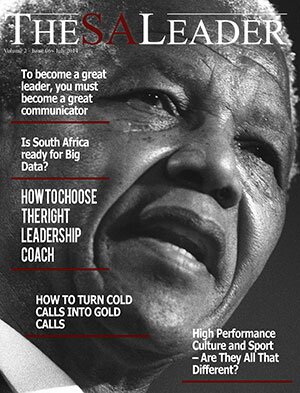African business schools to promote innovative thinking
- Details
- Category: Human Capital News
- Created on Monday, 28 July 2014 13:55
- Written by University of Cape Town Graduate School of Business
Business educators from across Africa learn that identifying new opportunities for innovative thinking is vital for African business schools if they wish to offer relevant and meaningful training to the continent’s future business leaders.
While the latest economic data shows continuing strong economic growth for countries on the African continent – and specifically in West and East Africa – there is a danger that the opportunities created by this new wealth will not translate into benefits for Africans and will only increase the gap between rich and poor Africans.
This was one of the key messages to come out of a week-long training programme for business educators from across Africa hosted by the Association of African Business Schools (AABS) at the University of Cape Town Graduate School of Business (UCT GSB) in July.
According to Dr Nosakhere Griffin-EL, lecturer in Inclusive Innovation at the UCT GSB, finding ways to make businesses better, not only financially but socially and culturally relevant as well should be one of the core functions of business schools in Africa.
“We need to figure out how to make business education relevant, not only in South Africa but in Africa. We need to think outside the box and push ourselves to explore new ways of thinking around business in Africa,” he says.
The school hosted two international business education events - the Association of African Business Schools (AABS) Case Teaching & Writing Course as well as the Teaching Master Class – Design Thinking & Innovation for educators from across the African continent. One of the highlights of these events was the participation of Harvard Business Administration Professor Srikant Datar, one of the world’s top design and innovation thinking experts.
Dr Griffin-El says the events wanted to explore ways for educators in business disciplines to become better teachers and to help people think more innovatively. “You can’t teach innovation, but you can be given the tools to encourage innovative thinking and open channels for creative thinking,” says Dr Griffen-El.
“The essence of the events programme is not prescriptive but interactive. It is about being open to dialogue and engaging with people from different parts of the world, from across various academic disciplines, to process it for our own context.”
UCT GSB Director Professor Walter Baets is currently the chairperson of the AABS, an organisation of over 30 African business schools. “Traditionally, the UCT GSB has had more collaborations with US and UK business schools, so the AABS allows us to build more relationships with other African schools – something which I believe, in the spirit of creating African management for Africa, is very important,” he said.
This is of crucial importance to the future success and relevance of African business schools says Dr Griffin-El. “I think Walter Baets is probably one of the biggest believers in taking different routes for Africa. He is an extremely innovative thinker who does not shy away from taking risks and pushing organisations and African business schools to a more full-colour approach with the end result of making our continent better.”
Advertisement
The SA Leader Magazine
In the July issue
To become a great leader, you must become a great communicator
Is South Africa ready for Big Data?
How to choose the right leadership coach
HOW TO TURN COLD CALLS INTO GOLD CALLS





